Description
ABSTRACT
The Changing Status of Employees in Modern Corporate Governance
Dr. Kathleen Okafor*
The relationship between labour and capital has always been testy. The reality of modern corporate governance however has seen greater cooperation and symbiosis between the two. The paper explores the historical relationship between labour and capital in pre-colonial and pre-independence Nigeria; and the different areas of labour’s involvement in corporate governance in modern Nigeria. The paper argues that from having representations on the Board, being members of strategic committees and involvement in training, health and safety issues, labour stands as the fulcrum of modern corporate governance. The paper concludes by arguing that the pivotal role of labour in the wealth of corporations requires that the corporate success must trickle down so as to have a productive workforce and sustainable development for corporations and local communities.
INTRODUCTION
This paper attempts to present the development of employment in Nigeria and how modern corporate governance1 has progressively accommodated the realities of employees2 financial and non-financial interest of co-ownership, co-determination, and co-influence. In this exercise, it has been necessary to demonstrate the socio-economic symbiosis between capital and labour i.e. shareholders and employees in the corporate arena. The symbiosis mainly arises because employees spend most of their lives serving companies. The employees’ lives and destinies, social status and even those of their nuclear and extended families usually depend enormously on the success of their companies. On the other hand, the shareholders are usually ubiquitous and depend on employees for productivity. The question which arises is how the humongous wealth of companies3 can be replicated in the employees to minimize social divisiveness, eradicate poverty and attain 21st Century sustainable development goals.
PHASES OF EMPLOYEES STATUS IN CORPORATE GOVERNANCE IN NIGERIA
Prior to the advent of the colonial masters4 in Nigeria, the economy of the country was largely agrarian and human capital, essentially, consisted of the man, his wives and children.5
* Ph.D., BL. Head of Department, Property & Commercial Law, Baze University, Abuja
- According to the Organization for European Cooperation and Development (OECD 2004), the concept consists in ‘a set of relationships between a company’s board, its shareholders and other stakeholders through which the company’s objectives are monitored and the goals achieved’
- Jowitt’s, Dictionary of English Law, (John Burke (eds) (2nd edn., Sweet & Maxwell, 1977) defines an employee as ‘an individual who has entered into or works under a contract with an employer, whether the contract be for manual labour, clerical work or otherwise be it expressed or implied, oral or in writing, and whether it be a contract of service or of apprenticeship’. In Yalaju – Amaye v Associated Engineering Contractors Ltd – (1990) 4 NWLR Pt 145, the Court of Appeal relying on Lee v Lee’s Air Farming Ltd (1961) AC 2, held that a director was an employee. See also Bernard Longe v First Bank of Nigeria (2007) SC 116/117
3. Walmart Corp. has 2.2m employees, and $785bn in annual revenues. Dangote Cement according to its Audited
Financial Statements accessed 12 February 2016, recorded N159bn profit after tax with over 22,000 employees, in the group
4. Colonization started early in the 19th Century
5. Akintunde Emiola, Nigeria Labour Law (Emiola Publishers, 1976)

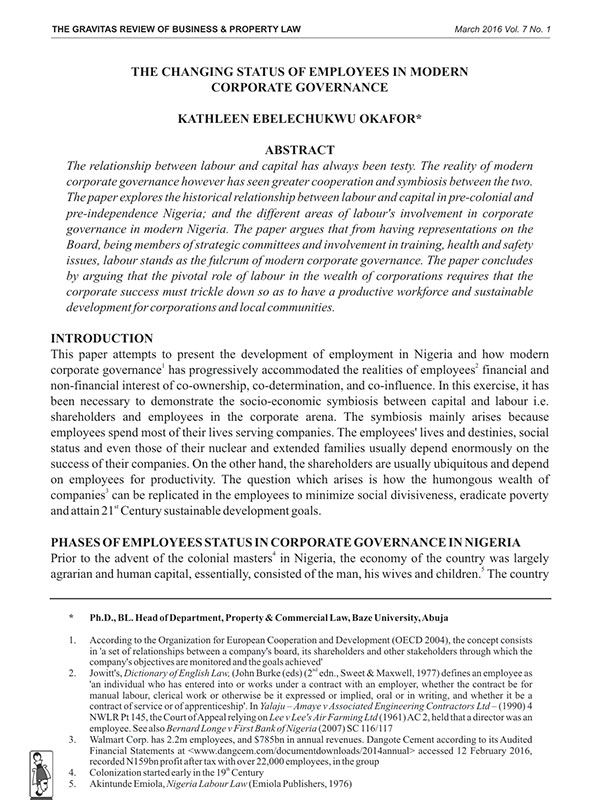
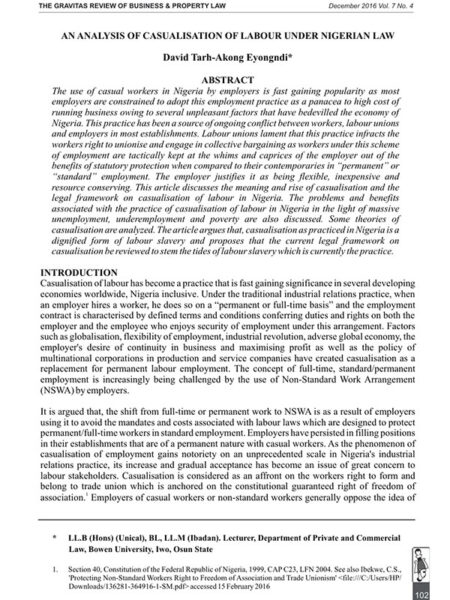
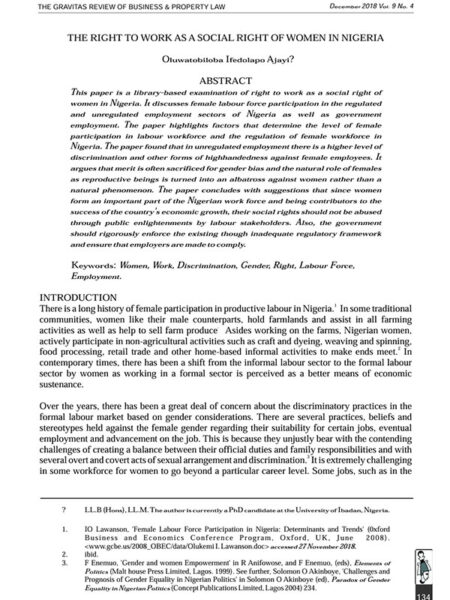
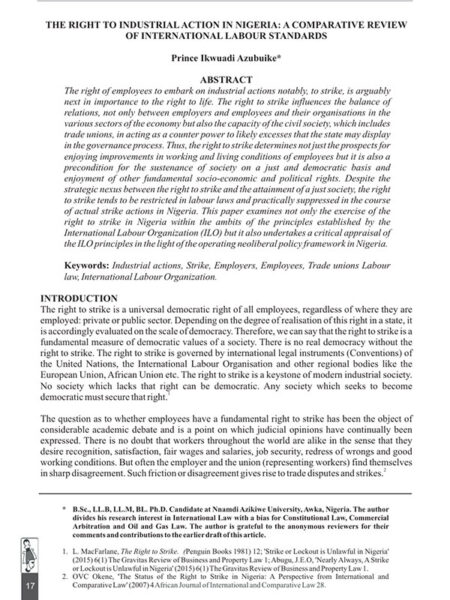
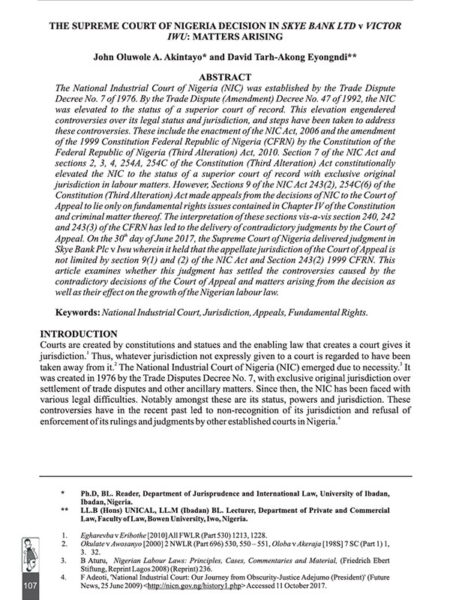


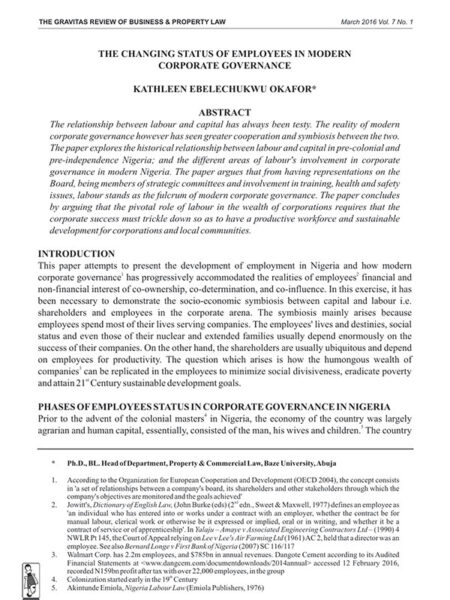
Reviews
There are no reviews yet.